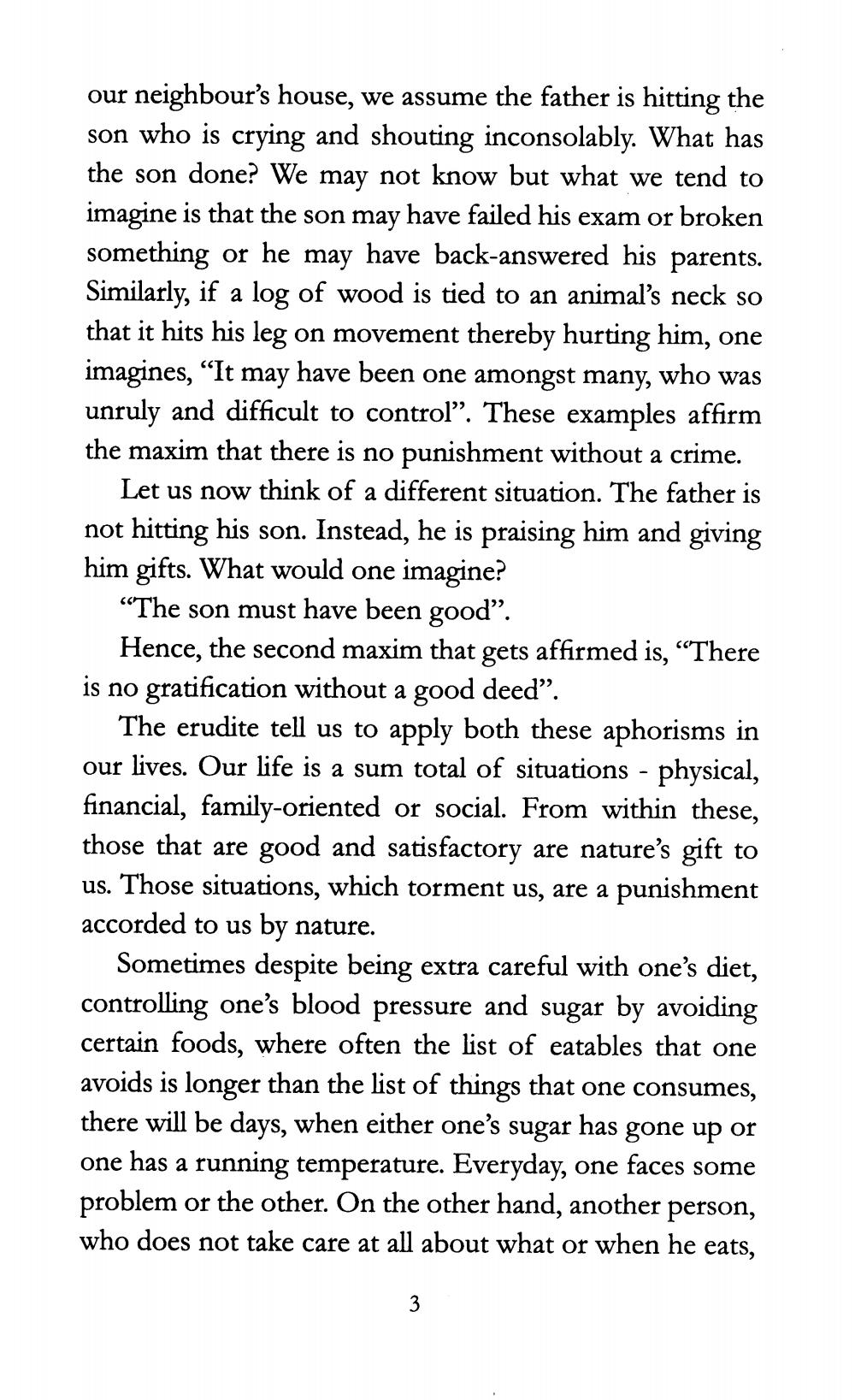________________
our neighbour's house, we assume the father is hitting the son who is crying and shouting inconsolably. What has the son done? We may not know but what we tend to imagine is that the son may have failed his exam or broken something or he may have back-answered his parents. Similarly, if a log of wood is tied to an animal's neck so that it hits his leg on movement thereby hurting him, one imagines, "It may have been one amongst many, who was unruly and difficult to control". These examples affirm the maxim that there is no punishment without a crime.
Let us now think of a different situation. The father is not hitting his son. Instead, he is praising him and giving him gifts. What would one imagine?
"The son must have been good".
Hence, the second maxim that gets affirmed is, "There is no gratification without a good deed”.
The erudite tell us to apply both these aphorisms in our lives. Our life is a sum total of situations - physical, financial, family-oriented or social. From within these, those that are good and satisfactory are nature's gift to us. Those situations, which torment us, are a punishment accorded to us by nature.
Sometimes despite being extra careful with one's diet, controlling one's blood pressure and sugar by avoiding certain foods, where often the list of eatables that one avoids is longer than the list of things that one consumes, there will be days, when either one's sugar has gone up or one has a running temperature. Everyday, one faces some problem or the other. On the other hand, another person, who does not take care at all about what or when he eats,
3




